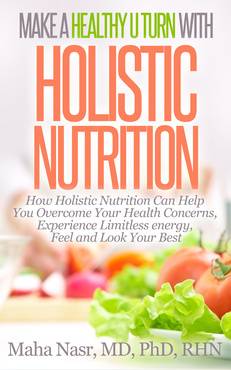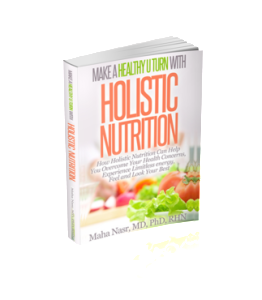Are you bloated after eating? Do you always feel full after meals? Do you worry about the next meal because you are afraid of the consequences? Are you afraid to eat in public because of embarrassing symptoms such as bloating or burping?
If you have been struggling with digestive issues such as bloating, gas or fullness after meals, it’s an indicator that your digestive system is not functioning optimally.
You probably need to make changes to your diet and improve your eating habits to fix these issues.
As an Oakville nutritionist, I see many clients complaining of indigestion, bloating, gas and abdominal pains and constipation which can be very disturbing and have serious negative effects on their health.
What’s more interesting is that most of my clients seek help for other unrelated issues which might be caused by their poor digestion, including allergies, sinus issues, chronic fatigue, hormonal imbalance, headaches, migraines and skin problems. All these issues have their root cause in the digestive system.
Poor digestion will usually cause nutritional deficiencies because food is not absorbed properly. Undigested food will also become fermented creating gas and bloating. It will also encourage the growth of candida and bad bacteria in the gut which cause toxicity and inflammation and can trigger allergic reactions.
5 Oakville Nutritionist Tips to Get Rid of Bloating
Here are 5 easy tips that I usually recommend in my Oakville holistic nutrition practice to my clients to start with in order to get rid of bloating and improve their digestive health.
1-Apple Cider Vinegar
Add a tbsp of organic apple cider vinegar to a shot of water and drink 10-15 minutes before meals. This will help acidify your stomach and prepare it for the coming food allowing for better digestion and less bloating.
2-Take time to eat your meal
Make sure to sit down, relax and take the time to chew your food properly and avoid eating on the run. It’s proven that stress shuts down digestion and will not help you to get the best of your food.
3-Avoid drinking with meals
Too much water will dilute your digestive enzymes which are already weak to start with and won’t help you digest your food properly. A few sips with your meal is ok but don’t overdo it.
4-Avoid eating protein with sugar
Eat concentrated proteins such as meat, chicken or dairy away from any sugary foods such as fruits. This can help improve your digestion because fruits will usually take a shorter time to digest and eating them with longer-digesting proteins will cause it to stay longer in your gut allowing for fermentation and gas formation.
5-Investigate food allergies or intolerance
Food allergies or intolerance are very common causes of bloating and gas. When you eat an allergenic food or any food that your body cannot tolerate, it won’t be digested properly resulting in bloating, gas and discomfort. An elimination diet or food allergy test is can help you to identify these foods. This step usually will have a considerable effect in improving your digestion long-term.
We are currently offering tele-health coaching via Zoom, so we can help you if you are out of area. If you need help with your health and nutrition, sign up for a 15 Min Discovery Call where we discuss your current goals and concerns and how we can help you.
If you find this information useful, please feel free to share with your family or friends.



